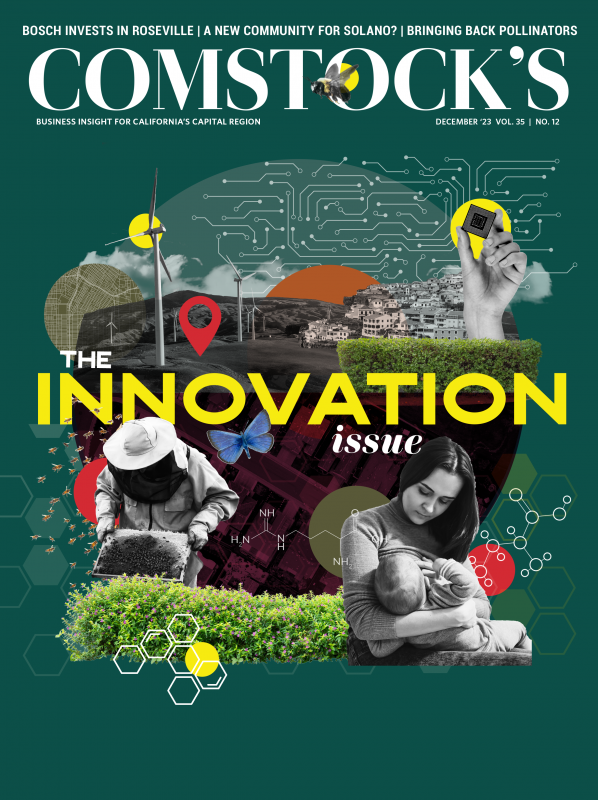As a chemist of food science, J. Bruce German was accustomed to observing the tiniest things: protein particles, bacteria, mucin layers and much more invisible to the naked eye. But nothing prepared him for his first experience in the neonatal intensive care unit at UC Davis.
It was the early 2000s when he took this trip. In the UC Davis Medical Center, he went up several floors, through a series of corridors, and came to the ward. Inside, amid the incessant beeping and buzzing of machines, hopeful families huddled over incubators as nurses and neonatologists stayed vigilant. By this point, German had daughters of his own. He knew what a full-sized baby was supposed to look like. These premature infants, unable to feed without tubes hooked in their little noses, made him reevaluate his perspective on life.
“It’s devastating how tiny they are, how fragile they are,” recalls German, director for the university’s Foods for Health Institute. “Your heart immediately goes out to them and all you can think is, ‘How can I help?’”
J. Bruce German, director of the UC Davis Foods for Health
Institute, was inspired to study breast milk after a
“devastating” visit to the neonatal intensive care unit at UC
Davis Medical Center. (Photo by Ashley Tongol)

A 2015 paper in Early Human Development called breast milk the “perfect nutrition.” Its ability to protect against a host of diseases — from asthma to eczema to sudden infant death syndrome — has been well documented. And efforts to understand, harness and replicate the power of breast milk have been in the works for decades. In the Capital Region, UC Davis has been at the forefront of innovation in this field, as scientists and medical professionals have joined forces to develop new treatments and products that can improve human health.
A trio of breast milk-related biotech startups have spun out of the university in the past 20 years: Infinant Health, one.bio and Matrubials. Each of them explores a different aspect of breast milk, tracing back to those heartbreaking trips German and his scientist colleagues took to the NICU.
“Nobody emerges from that unchanged,” German says. “Everybody moves from a sense of ‘I do this science to publish in journals and increase knowledge,’ which is a noble aspiration — I don’t want to denigrate the pursuit of knowledge — but there’s also this urgency of ‘OK, I now know what it means. How can I make sure it gets out?’ That doesn’t go away.”
‘Awe-inspiring bio-fluid’
The World Health Organization recommends that mothers breastfeed exclusively for the first six months of a baby’s life and may continue up to age 2 and beyond. That said, breastfeeding remains a complex subject both scientifically and culturally. Multiple studies have shown that mothers who use formula instead of breastfeeding can be afflicted by feelings of guilt and shame, and many mothers who breastfeed in public can experience fear and humiliation.
On the road to scientific breakthroughs, these are delicate nuances companies delving into this space may have to navigate. A North Carolina-based startup called Biomilq is trying to recreate breast milk outside the body, using cells to produce lactose and casein, a sugar and protein found in breast milk.
“Our opinion as a company — and most of us internally, too — is that breastfeeding, at the breast, has benefits that no one will ever be able to mimic,” Michelle Egger, a food scientist and co-founder of Biomilq, told the New Yorker. “If you can breastfeed — do it. Great. But the reality is, a majority of parents cannot exclusively breastfeed. … And that’s not for lack of trying.”
Based on data from infants born in 2020, about 25 percent of infants are breastfed exclusively through six months, according to the CDC. Barriers include a lack of clinical support, inadequate family paid leave that gives parents time with babies at home, and workplace policies that don’t provide time and space to feed and pump, says Jennifer T. Smilowitz, assistant professor of the cooperative extension in the Department of Nutrition at UC Davis. Still, the benefits of breast milk continue to lure researchers from various fields. The fact that it delivers a plethora of different molecules to nourish, protect and communicate information to a baby makes breast milk an “awe-inspiring bio-fluid,” says Smilowitz.
Jennifer T. Smilowitz, assistant professor of the cooperative
extension in the Department of Nutrition at UC Davis, calls
breast milk an “awe-inspiring bio-fluid.” (Photo courtesy of
Jennifer Smilowitz)

The components in breast milk provide thousands of nutrients and strengthen the baby’s immune system in various ways, known and unknown. One complex carbohydrate, called oligosaccharide, is found in very high concentrations. UC Davis researchers identified a bacterium in breast milk (B. infantis) that helps infants digest this, protects against infectious diseases, guides immune development and nourishes the baby’s microbiome. But not all babies have this bacterium.
This discovery led to the formation of Infinant Health (formerly Evolve Biosystems), which creates a specific commercial strain of B. infantis in a probiotic product to help preterm infants and full-term babies develop a healthy gut.
In recent months, Infinant Health has come under fire after the death of a preterm infant has been linked to its probiotic product. The FDA issued a warning in September to hospitals, advising them against administering Evivo with MCT Oil, the product which contains the live bacterium B. infantis. Genomic sequencing showed a genetic match between the bacteria that caused sepsis in the infant and the bacteria found in a probiotic, according to the FDA letter. However, it is not clear that the probiotic caused the death of the baby. (A recent Comstock’s article further investigates probiotic safety for infants.)
“We know breast milk is important, so now we have to study it,” Smilowitz says. “You’ve got to understand the genius of milk, learning from its complexity, structure and function in the infant. … You just can’t mimic it, and I think that’s why technology looks to milk for inspiration.”
Making connections
While Infinant Health is focused on infant gut health, the other two breast milk-related biotech startups emerging from UC Davis have similar goals to treat diseases but from different angles.
In 2019, one.bio (formerly BCD Bioscience), co-founded by Matt Amicucci, launched to develop new prebiotics and biologically active carbohydrates for adults based on the molecular and functional properties of breast milk carbohydrates. In 2020, Matrubials, co-founded by Ishita Shah, zeroed in on antibiotic molecules found in breast milk to create medications — and formulate them in ointments or tablets — to treat bacterial infections, particularly those that impact women.
These three startups all have a common origin: Along with German, microbiologist David Mills and glycochemist Carlito Lebrilla created a nexus of collaborative research around breast milk. In 2004, they officially formed what became known as the Milk Bioactives Program, based in the Foods for Health Institute at UC Davis, to deconstruct milk and study its role in infant and maternal health, development, protection and performance.
“To address the subject of human milk, you had to work between fields, which, believe it or not, doesn’t happen all the time,” Mills says. “The gaps between the fields are what drives this innovation.”
The model at UC Davis emphasizes cross-disciplinary thinking. For example, if you’re a chemist in the chemistry department, you can join a graduate group much more dedicated to specific applications of chemistry, which might be biochemistry, veterinary programs or food science, among others. Collaboration is critical because scientists typically work in silos, “insulating themselves in their fields in a way that can become self-congratulatory,” German says.
To this day, the milk program unites scientists from the College of Agricultural and Environmental Sciences, the School of Medicine, School of Veterinary Medicine and others. If it weren’t for this interdisciplinary focus, the milk researchers might never have visited Dr. Mark Underwood in the NICU in the 2000s. They might never have seen up close how scientific knowledge can exist beyond the pages of journals to serve human lives.
Mark Underwood “would say, ‘We don’t know how to nourish these guys. We’re doing the best we can, but there’s so little we know,’” German recalls. “If you trust someone to tell them what you don’t know, in science, that’s tough, because for scientists, their value is what they know.”
At the time, German and his colleagues didn’t have answers for Underwood, but they now had a practical problem to solve. Most premature infants unable to nurse are fed by a nasogastric tube. Underwood realized this pump could be reversed, removing a little bit of milk to see if it had been digested at all. In a critical breakthrough, the group realized it was actually being digested in healthy infants, but not just because of the baby. It was also the milk itself — the milk was self-digesting.
Cost benefits
Most scientists never see the work they do brought to practice in their lifetimes, German says. It just takes too long, partly because scientific work is difficult to fund. The milk initiative co-founded the three startups, receiving various grants and more than $20 million in the past 20 years to further their research.
“The vast majority of research funding going to health isn’t really going to health at all,” German says. “It’s going to solve the diseases of middle-aged, rich men. That’s the horror. It’s going to support helping keep senators alive a little longer.”
Still, those who understand the value of human milk continue to push for support. Beyond the science labs, this mission includes how breast milk is handled. The Nutrition and Food Service Department at Sutter Medical Center Sacramento has been mixing infant formula since the 1980s, but the department had never taken on responsibility for breast milk, says Joan Baca, manager of Medical Nutrition Therapy at SMCS.
In its neonatal intensive care unit, the largest in Northern California, nurses fortified human milk in the patients’ room at a counter. But research shows that using human milk technicians who fortify milk in a separate room decreases three common issues: contamination, inaccuracy of preparation and misadministration (giving milk to the wrong baby). Baca wrote a proposal in 2019 asking for more staff to handle the milk in a separate room, a move to help prevent diseases that can infect the guts of premature infants.
In April, SMCS launched a new initiative with human milk technicians, a.k.a. “dairy fairies.” Trained in-house, these employees fortify human milk according to specific recipes for babies under 32 weeks of gestation. The program has served up to 14 infants in the NICU. Baca wants to expand the program to service all 61 beds.
“We’re specifically tracking a disease that can infect premature infants in their gut,” Baca says. “This year, to date, we’ve had three cases. Last year, we had 11. The cost of treating that illness can be between $250,000 and $450,000. By preventing two cases, it pays for the staff. … We have wanted this for a long time.”
The human milk technicians have various backgrounds, Baca adds. Some studied nutrition, one is a phlebotomist, another is working on her master’s degree in maternal child health. This is another example of how different specialties and expertise can converge for a common cause, which German believes is the key ingredient for innovation.
“That’s what you really want,” German says. “Graduate students coming up with ideas and the next thing you know, a cross-disciplinary idea really gets legs. It’s the ecosystem of Davis. Other people think we’re crazy. ‘How do you keep everybody straight?’ We don’t. That’s the point.”
Stay up to date on business in the Capital Region: Subscribe to the Comstock’s newsletter today.
Recommended For You
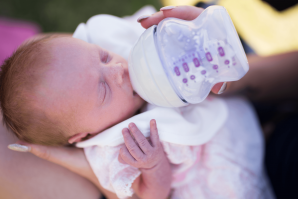
Are Probiotics Safe for Infants?
UC Davis spinoff startup comes under fire after infant death linked to product
In recent months, Infinant Health has come under fire after the death of a preterm infant has been linked to its probiotic product. The FDA issued a warning in September to hospitals, advising them against administering Evivo with MCT Oil, the product which contains the live bacterium B. infantis.
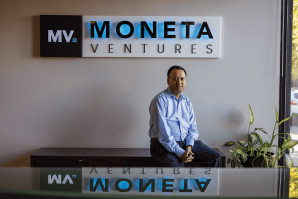
Startup Revolution
The Capital Region’s emerging startup community is attracting big investments
Since 2020, the global economy has been mired in uncertainty. On Oct. 5, 2023, investors and entrepreneurs convened at the Roebbelen Center @The Grounds in Roseville to address certain questions regarding business in the Capital Region.
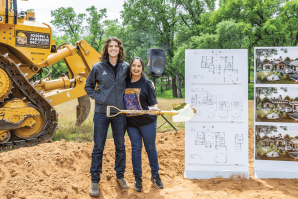
Protectors of an Honored Heritage
How Indigenous tribes are using business revenues to maintain and celebrate their cultures
“When you talk about business, ours has allowed us to bring our culture back,” Tayaba notes. “Building our dance arbor, having our ceremonies — obtaining eagle feathers, abalone, clam shells, pine nuts, items that aren’t easily foraged today — it all costs money. Now we hold workshops, classes, dance practices. We’re trying to rebirth weavers, because our grandmothers were weavers.”
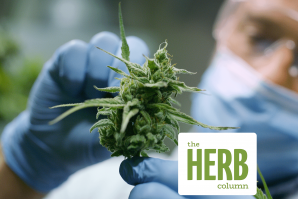
The Herb Column: Curbing the ‘COVID of the Plant World’
Cannabis growers battling hop-latent viroid that threatens their harvest
A sneaky viroid has been spreading invisibly for months at a time in cannabis plants across the country, decimating crops right as they’re about to flower. The so-called hop latent viroid is now the “biggest concern for cannabis growers worldwide,” according to a recent scientific paper.




